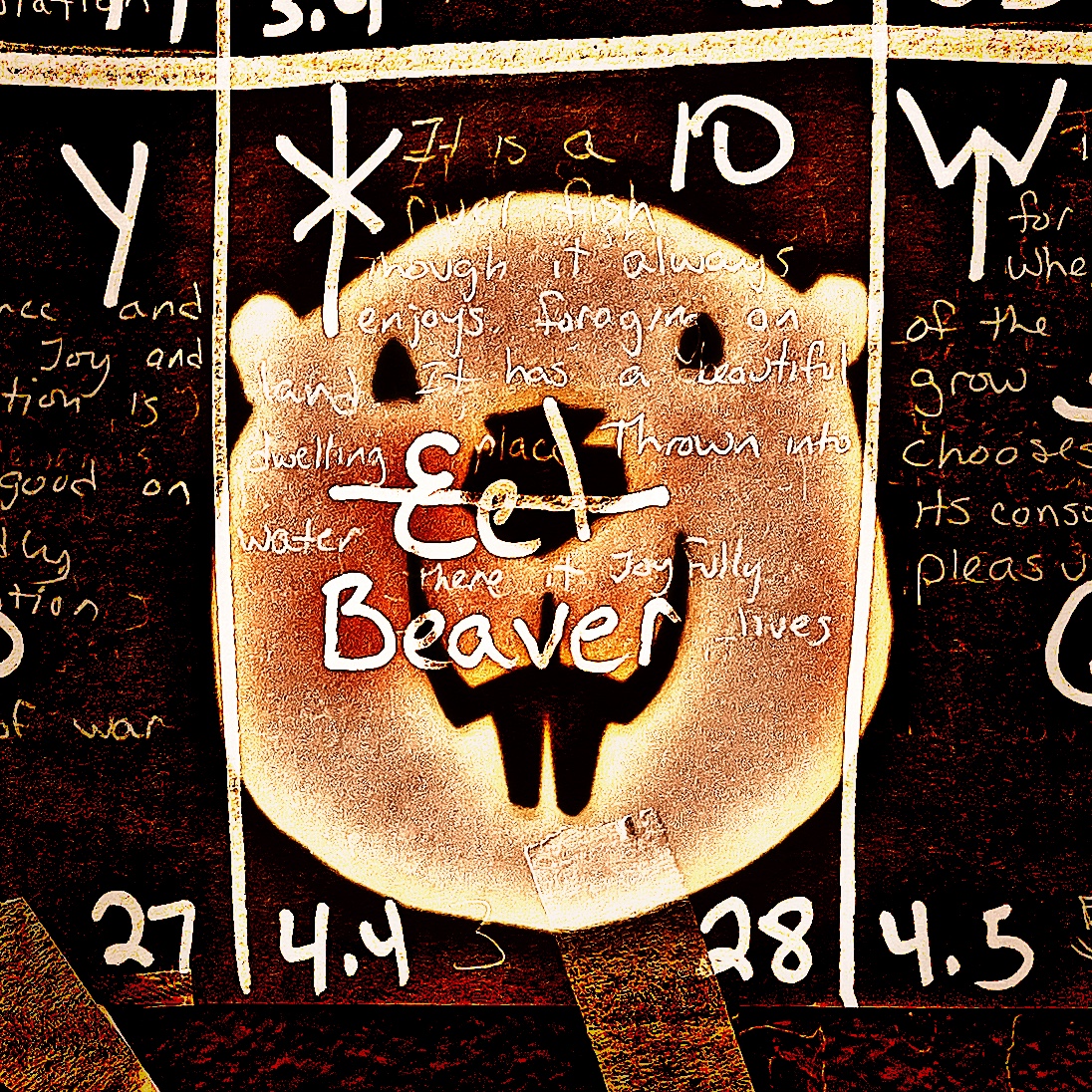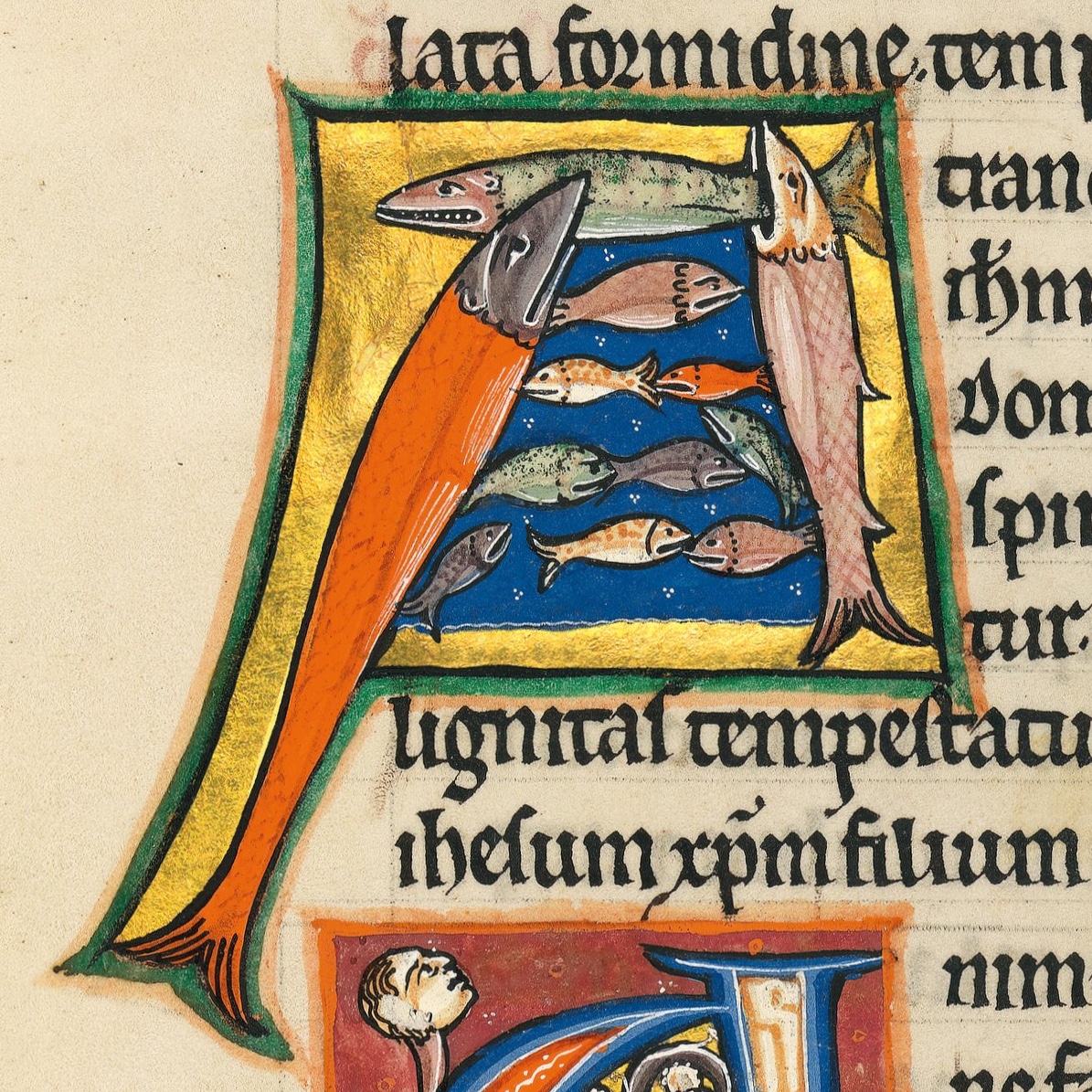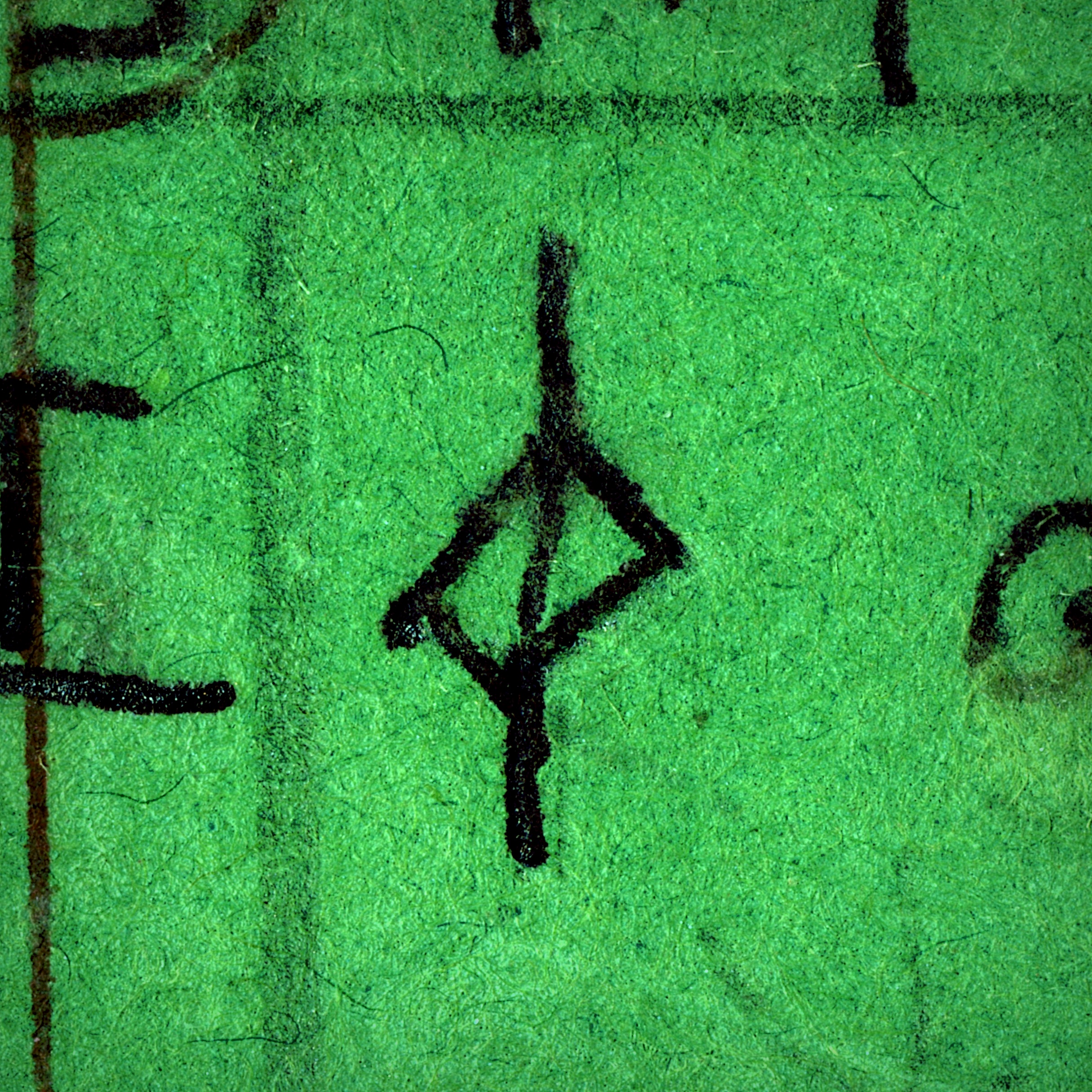 Ger is a little small. Look at it so teeny: ᛄ. You might not be able to see. It’s bigger now, it grew over time, but the poor thing was only half sized once. Sometimes Ger is carved to look like the rune for Beaver, Ior, ᛡ, making for redundancy and a real identity crisis for sweet little ᛄ, though ᛄ did stand up a little taller to claim a space in manuscripts at least. ᛄ’s got other problems too. It once made a J sound before shifting into a softer palatal G and then ultimately a Y sound represented by Ge, where it seems to have landed, unfortunately sharing the same initial sound of the ᛡ rune as well as its look sometimes. This does lend to a bit of an identity crisis. ᛄ was here first, I’ll have you know, and it’s hard for a small rune like ᛄ to … More
Ger is a little small. Look at it so teeny: ᛄ. You might not be able to see. It’s bigger now, it grew over time, but the poor thing was only half sized once. Sometimes Ger is carved to look like the rune for Beaver, Ior, ᛡ, making for redundancy and a real identity crisis for sweet little ᛄ, though ᛄ did stand up a little taller to claim a space in manuscripts at least. ᛄ’s got other problems too. It once made a J sound before shifting into a softer palatal G and then ultimately a Y sound represented by Ge, where it seems to have landed, unfortunately sharing the same initial sound of the ᛡ rune as well as its look sometimes. This does lend to a bit of an identity crisis. ᛄ was here first, I’ll have you know, and it’s hard for a small rune like ᛄ to … More
Tag Archives: Ior
Translating Ior
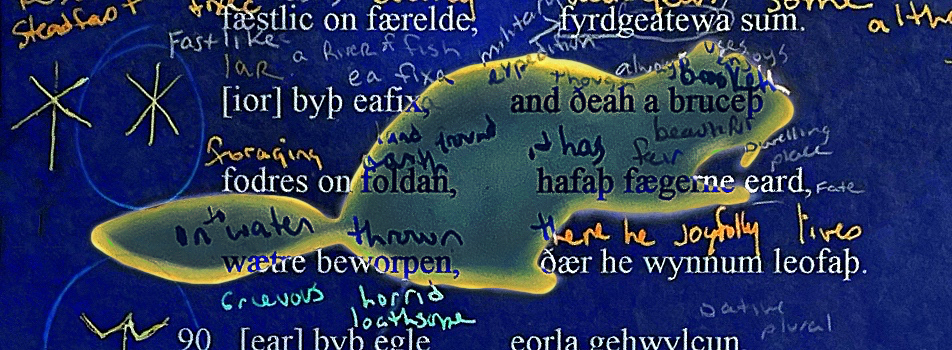
What is this thing Ior? Runes are riddles and this one is unsolved, but let’s try anyway.
The Rune Poem calls ior a river fish that forages on land. Amphibian. Eel fits well. Some say it is a newt or possibly a water mammal like an otter. Most translators choose eel because it was important in medieval Britain, it was food. I assumed eel for this reason for quite a long time. But this is no way to solve a riddle.
The name of this rune is Ior. There exists an Old English word for eel and it’s not ior, it’s ælfisc. Eel fish. They didn’t call this rune eel fish. They didn’t call it anything we can understand: ior is not a word in Old English, unless it means the letter IO or the rune ᛡ. We have to look under the surface if we want to find this river … More
Moody Joy
 The rune carvers prized beaver fur and skin, their teeth made a great necklace found sometimes in the graves of women and children and once around the neck of a dog, and by church decree beaver tails counted as fish you could eat during lent. Their castor glands were highly valued and their testicles (possibly still the castor glands but mistaken for testicles) cured disease. Because they were valuable for so many reasons, beavers were an overhunted and dwindling population during the time of the rune carvers.
The rune carvers prized beaver fur and skin, their teeth made a great necklace found sometimes in the graves of women and children and once around the neck of a dog, and by church decree beaver tails counted as fish you could eat during lent. Their castor glands were highly valued and their testicles (possibly still the castor glands but mistaken for testicles) cured disease. Because they were valuable for so many reasons, beavers were an overhunted and dwindling population during the time of the rune carvers.
The aurochs were already extinct in Britain by the time the runes were introduced, gone by the end of the bronze age. They still lived on the European continent, though rare, and they were important in Britain for the extremely high value of their horns. The people would carve them and inlay them with silver, and pass them down to their children as ealdgestreon, ancient treasure, which of … More
Wyrd
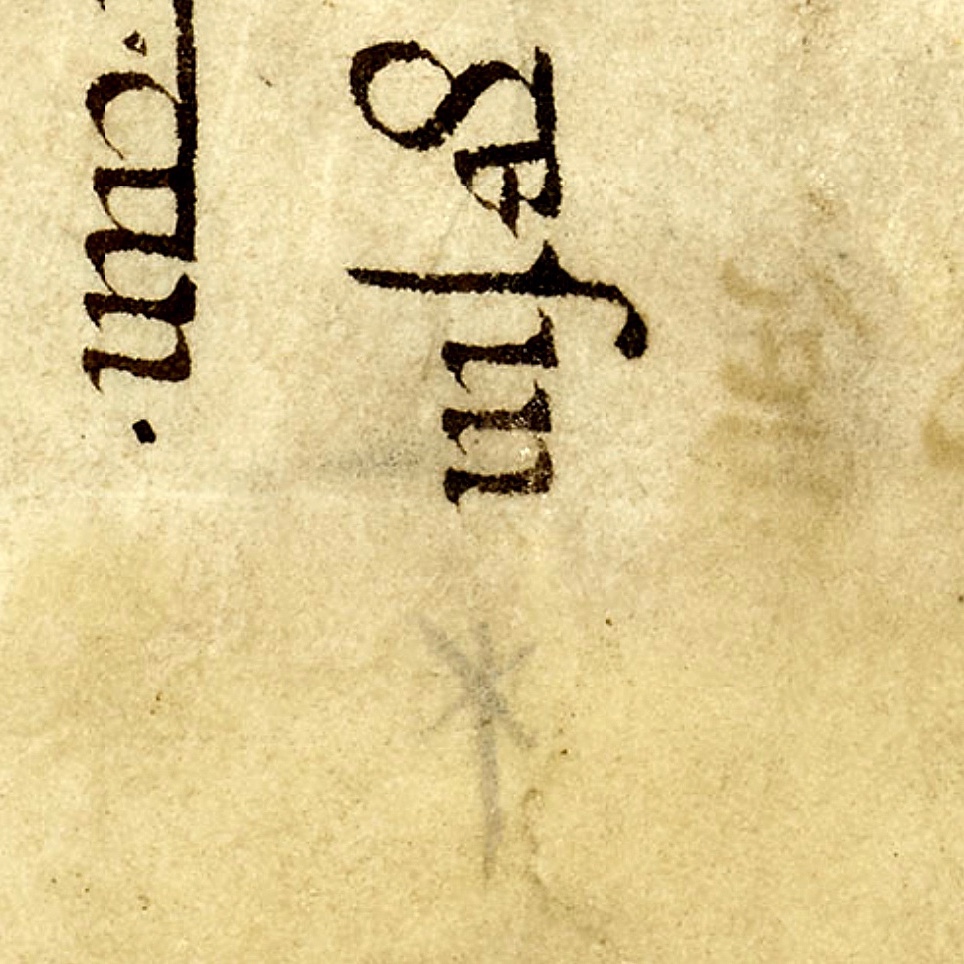 Well this is weird. Here’s what’s happened. At the start of The Exeter Maxims I part C, we get a window into how runes were once used, so I wanted to include it somewhere in Letters for Titles. I thought there’s plenty of places to put it, and I did work it into the first draft of Rune Casting: Ur, where it lived for a year. But it doesn’t quite fit there so I removed it from the final version. I say final but everything is temporary. Then I removed a whole piece called The Beasts of the Field which once held this spot, unfortunately losing as well a gif of Brazil‘s fly falling into the typewriter and turning Tuttle into Buttle. Something had to replace it, so I went to the maxims in The Exeter Book, folio 91r, and translated this:
Well this is weird. Here’s what’s happened. At the start of The Exeter Maxims I part C, we get a window into how runes were once used, so I wanted to include it somewhere in Letters for Titles. I thought there’s plenty of places to put it, and I did work it into the first draft of Rune Casting: Ur, where it lived for a year. But it doesn’t quite fit there so I removed it from the final version. I say final but everything is temporary. Then I removed a whole piece called The Beasts of the Field which once held this spot, unfortunately losing as well a gif of Brazil‘s fly falling into the typewriter and turning Tuttle into Buttle. Something had to replace it, so I went to the maxims in The Exeter Book, folio 91r, and translated this:
Ræd sceal mon secgan rune writan
leoþ gesingan leofes … More
Rune Casting: Ior
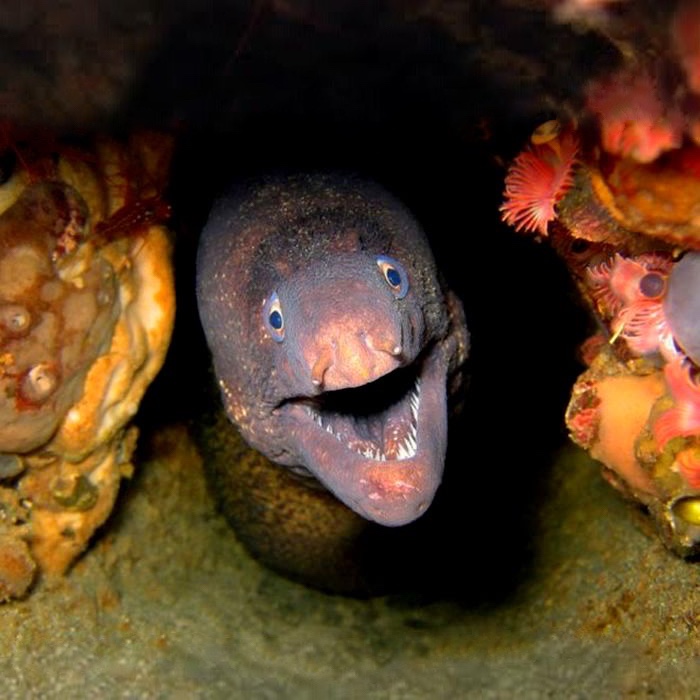
Well look at that you got the Ior rune. Nice. Beaver, probably. Some say eel. Beaver is happier. When have you ever seen a cheerful eel?
You’re doing alright, I can see that. You’ve got a nice place here. Comfortable, I like it. I like your stuff. You’ll be happy at home, and close to it. Content. Peaceful. Here you can go with the flow, throw yourself right in with it and splash around.
ᛡ
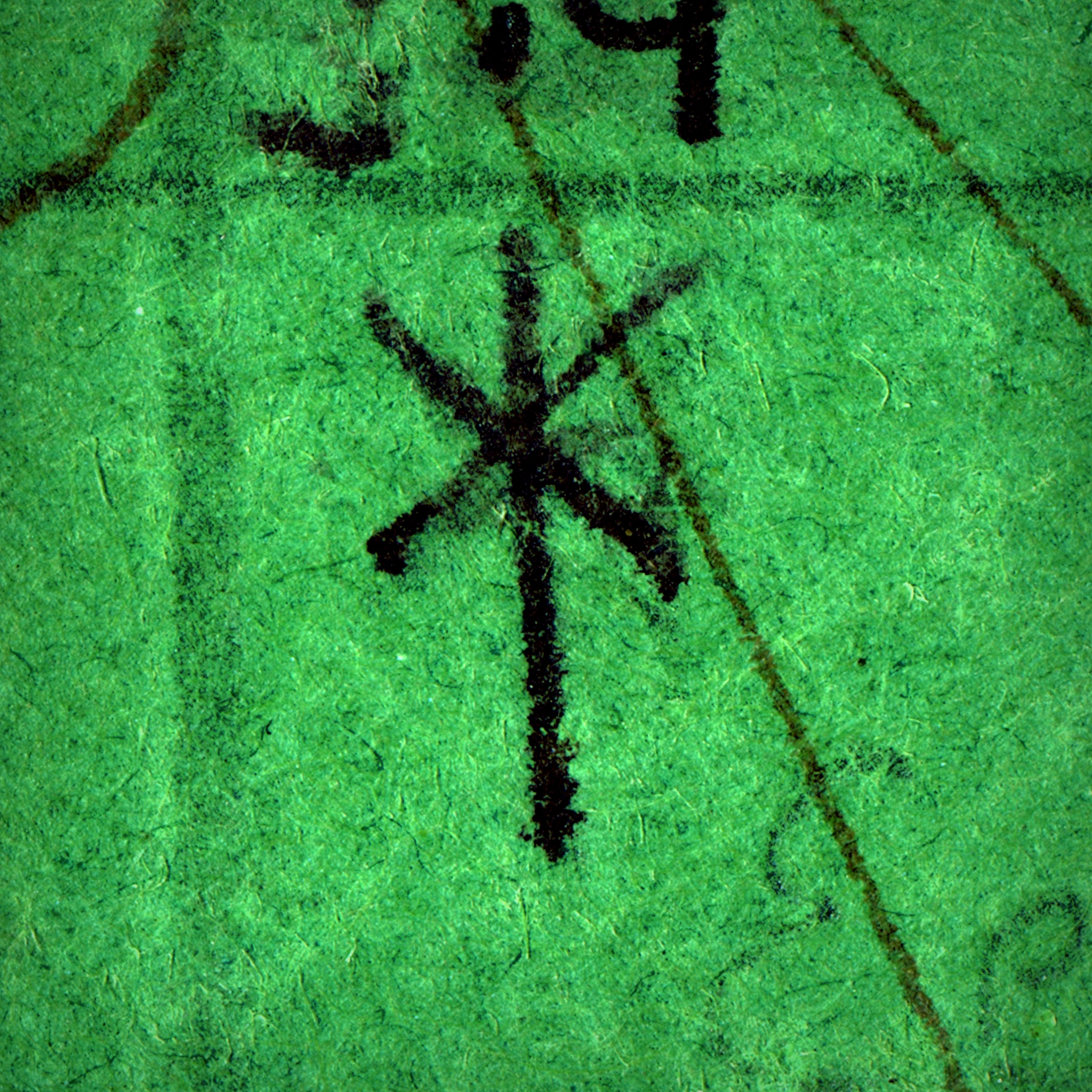 IO: extinct Old English diphthong. Of the bajillions of possible sounds we can make with our voices, only a few are needed for language. We made this one redundant. Exiled. Fired its ass. It barely did anything around here. What’s it for? It’s absent from other Old English alphabet collections, the malingerer. It’s unwanted as far as we’re concerned. EO does everything IO can do, and does it better. We don’t need IO. What’s IO even doing here? Pack up your stuff IO and get out, you’re history.
IO: extinct Old English diphthong. Of the bajillions of possible sounds we can make with our voices, only a few are needed for language. We made this one redundant. Exiled. Fired its ass. It barely did anything around here. What’s it for? It’s absent from other Old English alphabet collections, the malingerer. It’s unwanted as far as we’re concerned. EO does everything IO can do, and does it better. We don’t need IO. What’s IO even doing here? Pack up your stuff IO and get out, you’re history.
But of course IO has to be difficult on its way out. Typical. Try carving this one into anything. You’ll need a precise hand and a sharp knife. A little finesse. This isn’t hammer and chisel like ᚢ. Make an X, now draw a line through it without slipping to one side or the other. Pass straight through that X’s meeting point, right down … More


